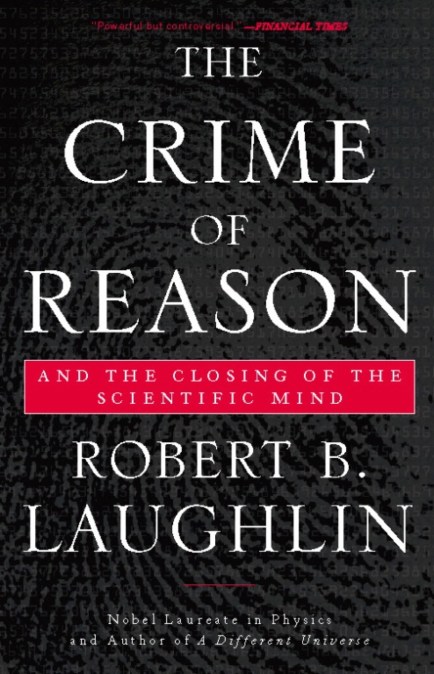Shopping Cart
The Crime of Reason
And the Closing of the Scientific Mind
Description
We all agree that the free flow of ideas is essential to creativity. And we like to believe that in our modern, technological world, information is more freely available and flows faster than ever before. But according to Nobel Laureate Robert Laughlin, acquiring information is becoming a danger or even a crime. Increasingly, the really valuable information is private property or a state secret, with the result that it is now easy for a flash of insight, entirely innocently, to infringe a patent or threaten national security. The public pays little attention because this vital information is “technical” — but, Laughlin argues, information is often labeled technical so it can be sequestered, not sequestered because it’s technical. The increasing restrictions on information in such fields as cryptography, biotechnology, and computer software design are creating a new Dark Age: a time characterized not by light and truth but by disinformation and ignorance. Thus we find ourselves dealing more and more with the Crime of Reason, the antisocial and sometimes outright illegal nature of certain intellectual activities.
The Crime of Reason is a reader-friendly jeremiad, On Bullshit for the Slashdot and Creative Commons crowd: a short, fiercely argued essay on a problem of increasing concern to people at the frontiers of new ideas.
The Crime of Reason is a reader-friendly jeremiad, On Bullshit for the Slashdot and Creative Commons crowd: a short, fiercely argued essay on a problem of increasing concern to people at the frontiers of new ideas.
Newsletter Signup
By clicking ‘Sign Up,’ I acknowledge that I have read and agree to Hachette Book Group’s Privacy Policy and Terms of Use
Praise
Peter Thiel, President, Clarium Capital Management
"Nobel Laureate Robert Laughlin convincingly argues that we are on the verge of a new dark age as scientific and technical knowledge become the province of experts and the broader populace becomes more ignorant. The Crime of Reason is an eloquent plea for our civilization to keep its lights on."
Library Journal
"With humorous honesty (it can be fun to think apocalyptically from time to time), Laughlin uncovers the barriers scientists, engineers, and laypeople encounter when they try to learn how the world works by standing on the shoulders of giants, the discoveries of others.. His argument is profound and not easy to dismiss."
The Tennessean
“In this jeremiad against the stifling constraints of commercialized culture…Laughlin explains the problems well.”
"Nobel Laureate Robert Laughlin convincingly argues that we are on the verge of a new dark age as scientific and technical knowledge become the province of experts and the broader populace becomes more ignorant. The Crime of Reason is an eloquent plea for our civilization to keep its lights on."
Library Journal
"With humorous honesty (it can be fun to think apocalyptically from time to time), Laughlin uncovers the barriers scientists, engineers, and laypeople encounter when they try to learn how the world works by standing on the shoulders of giants, the discoveries of others.. His argument is profound and not easy to dismiss."
The Tennessean
“In this jeremiad against the stifling constraints of commercialized culture…Laughlin explains the problems well.”
